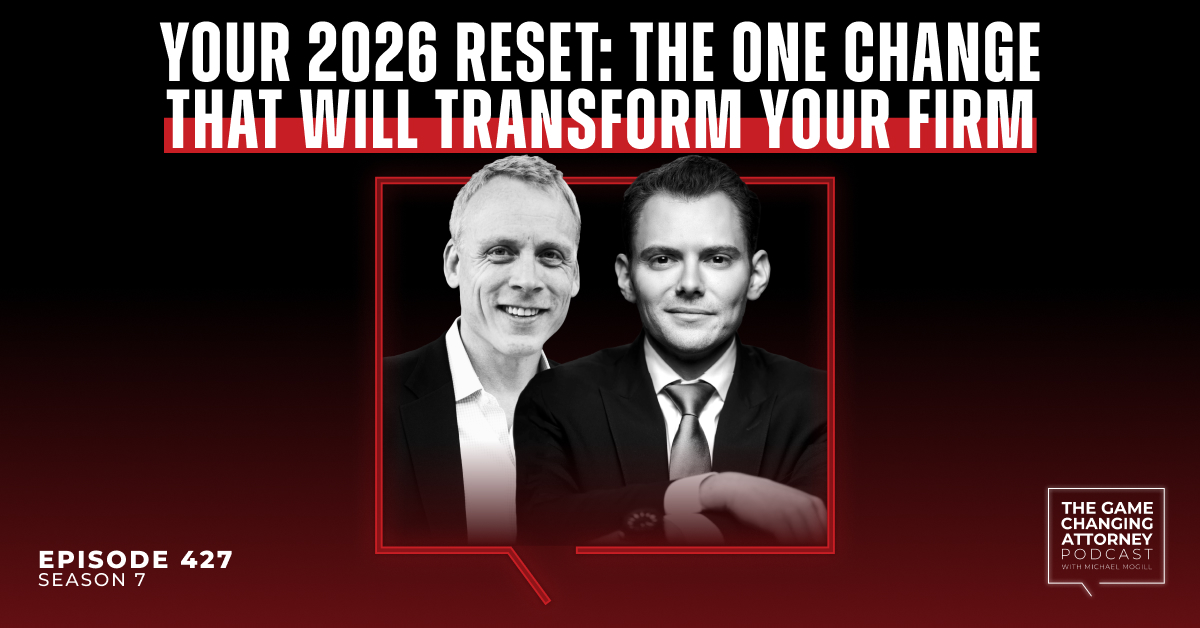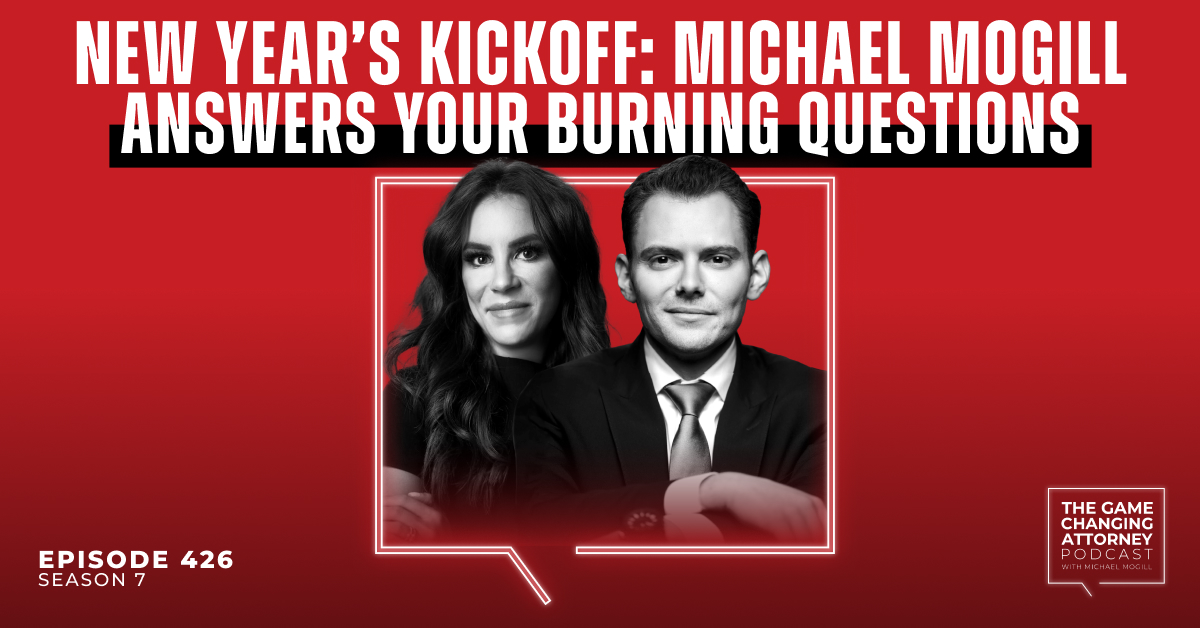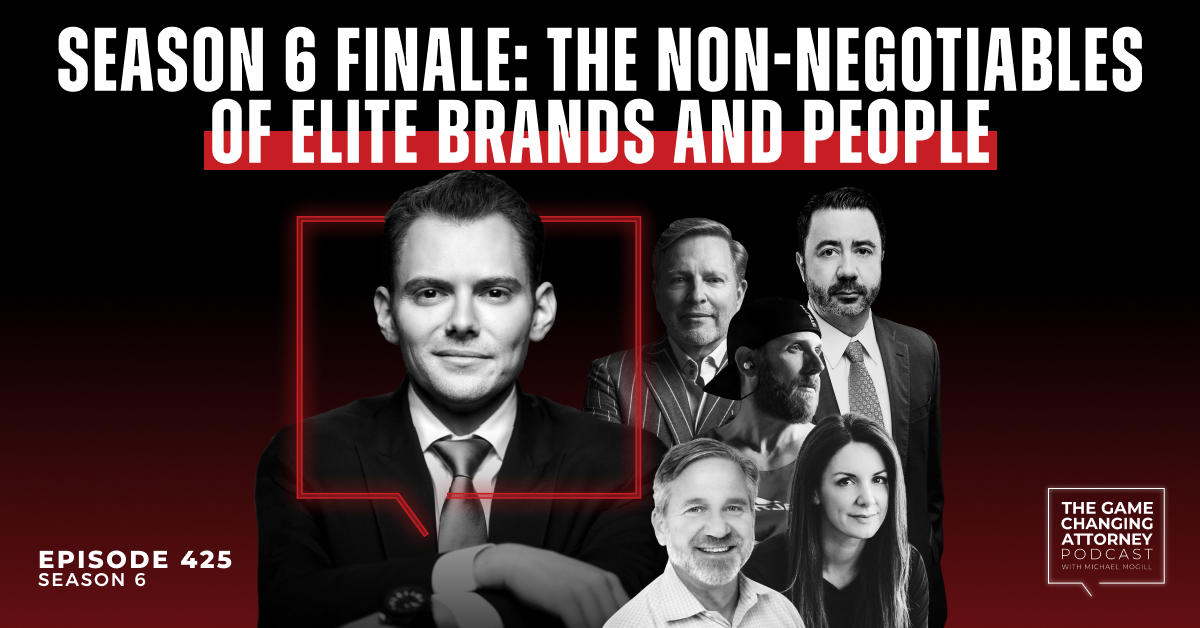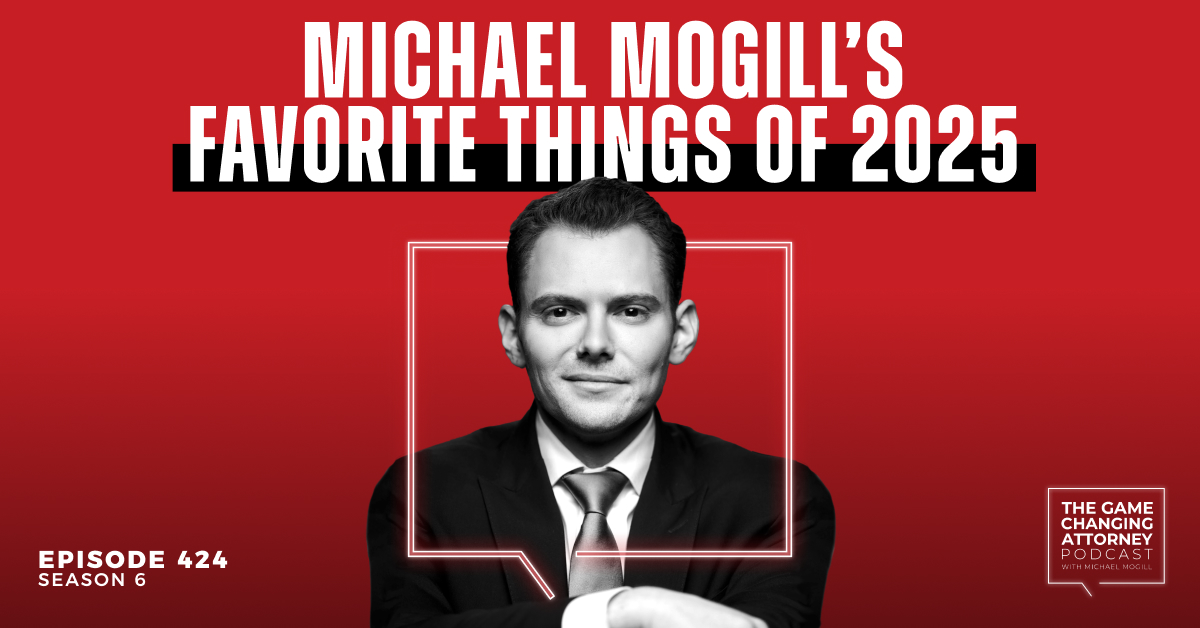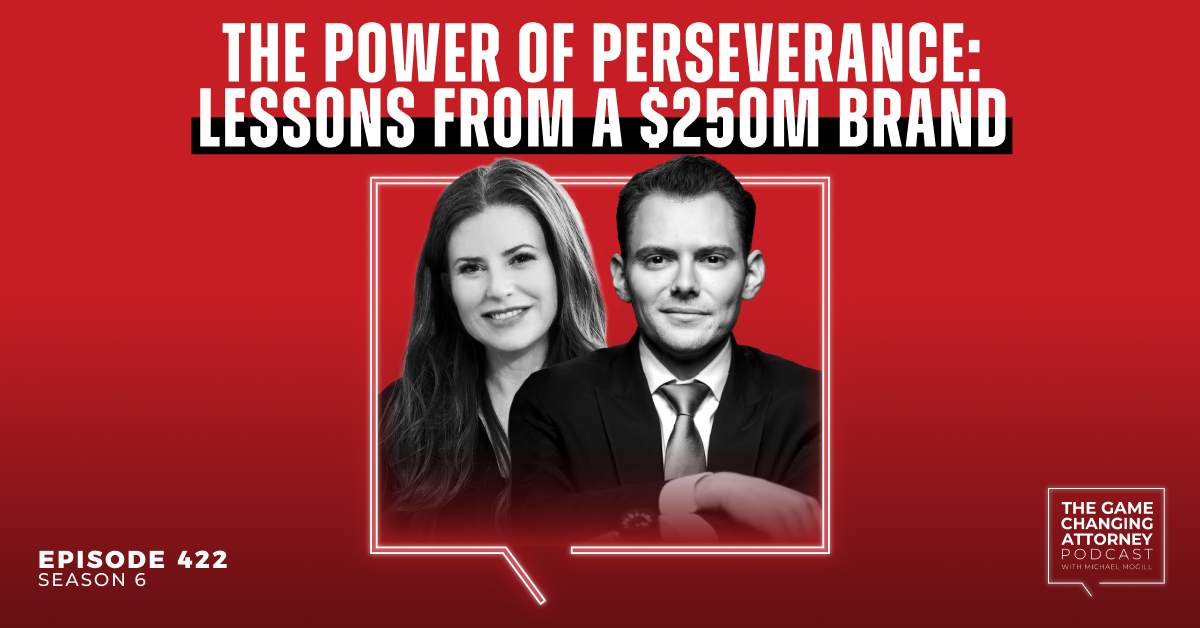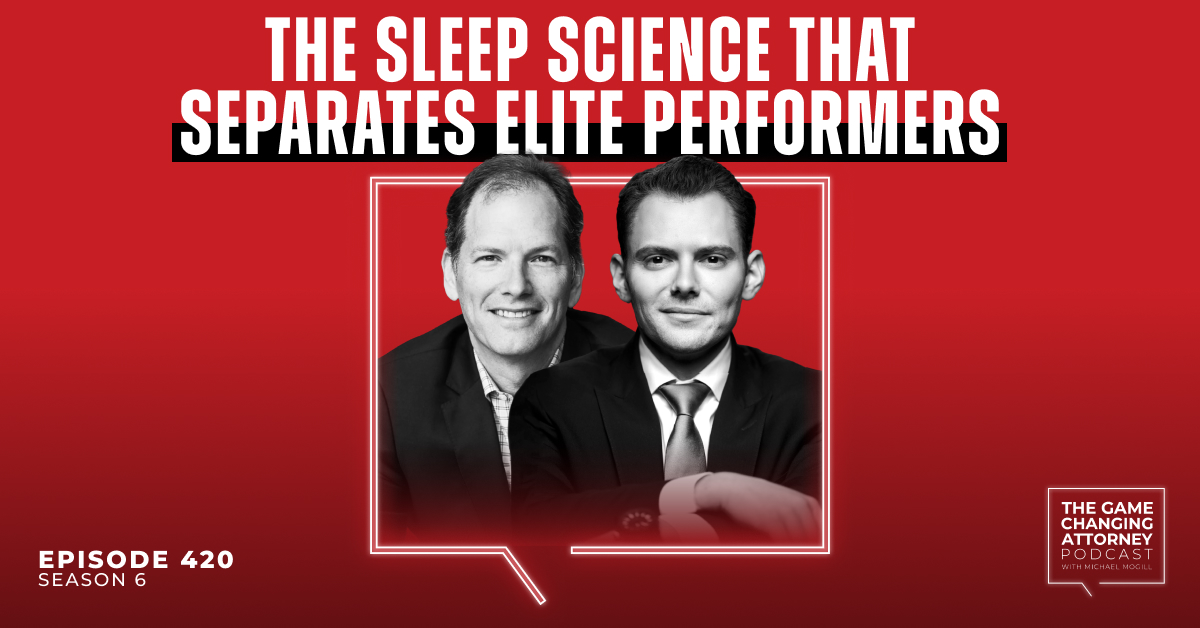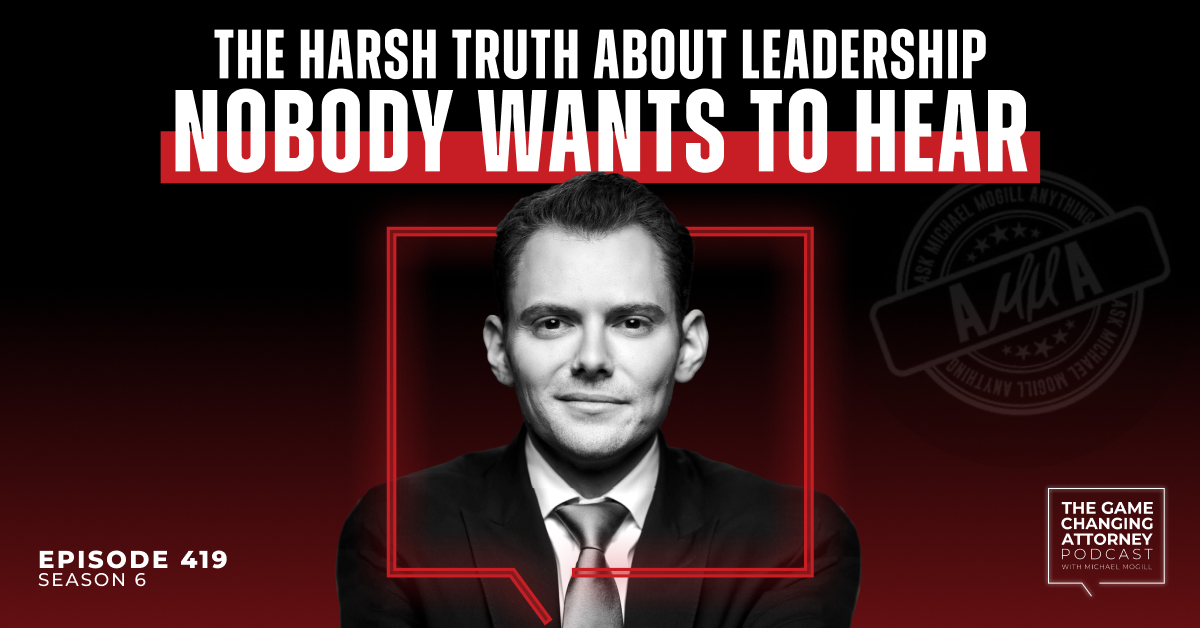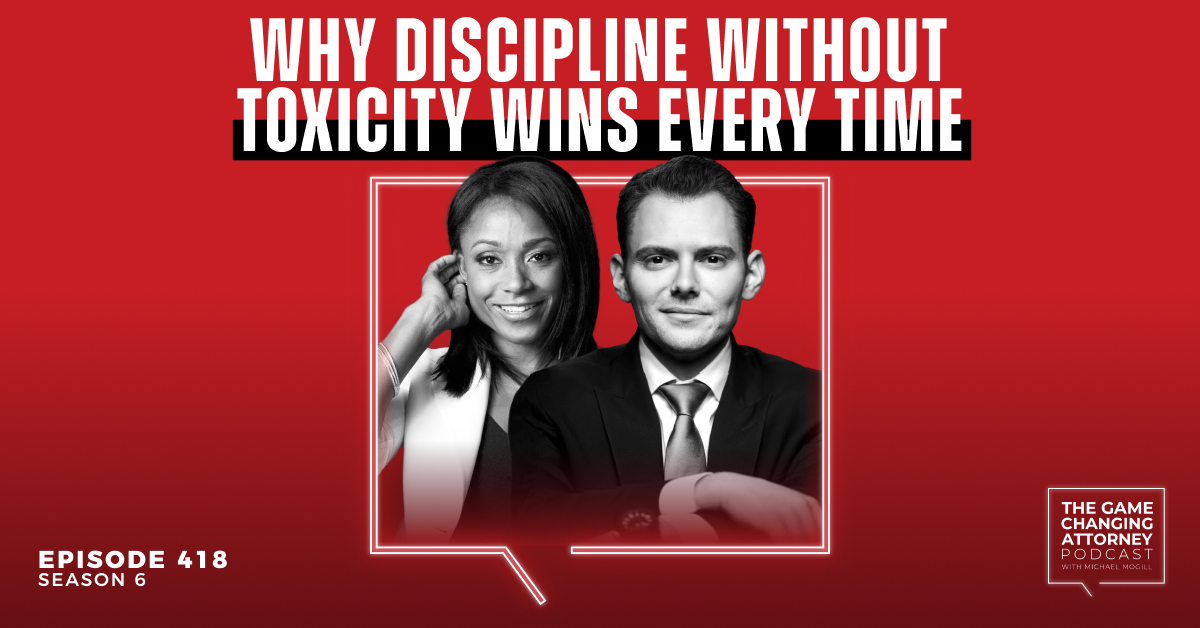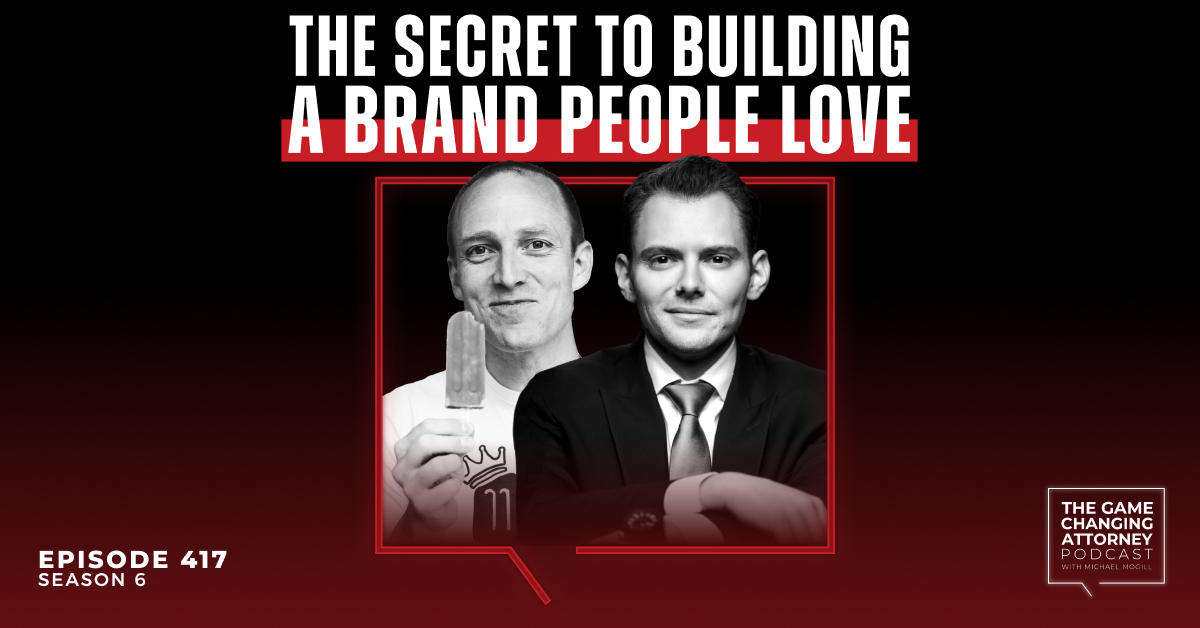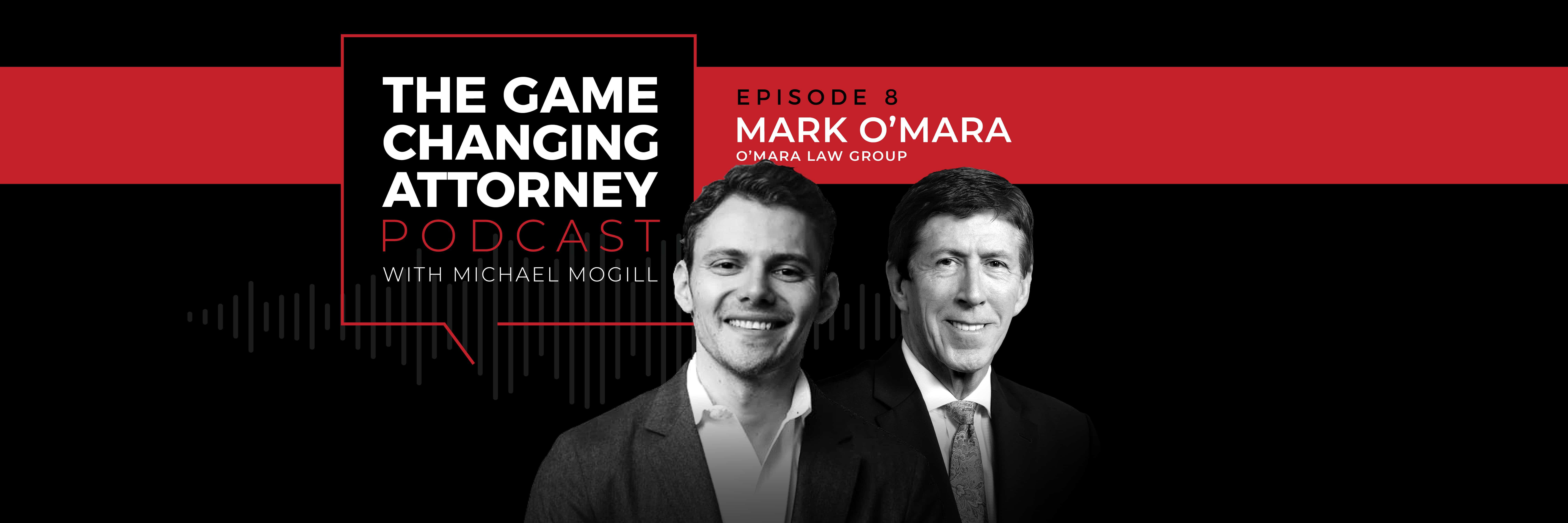
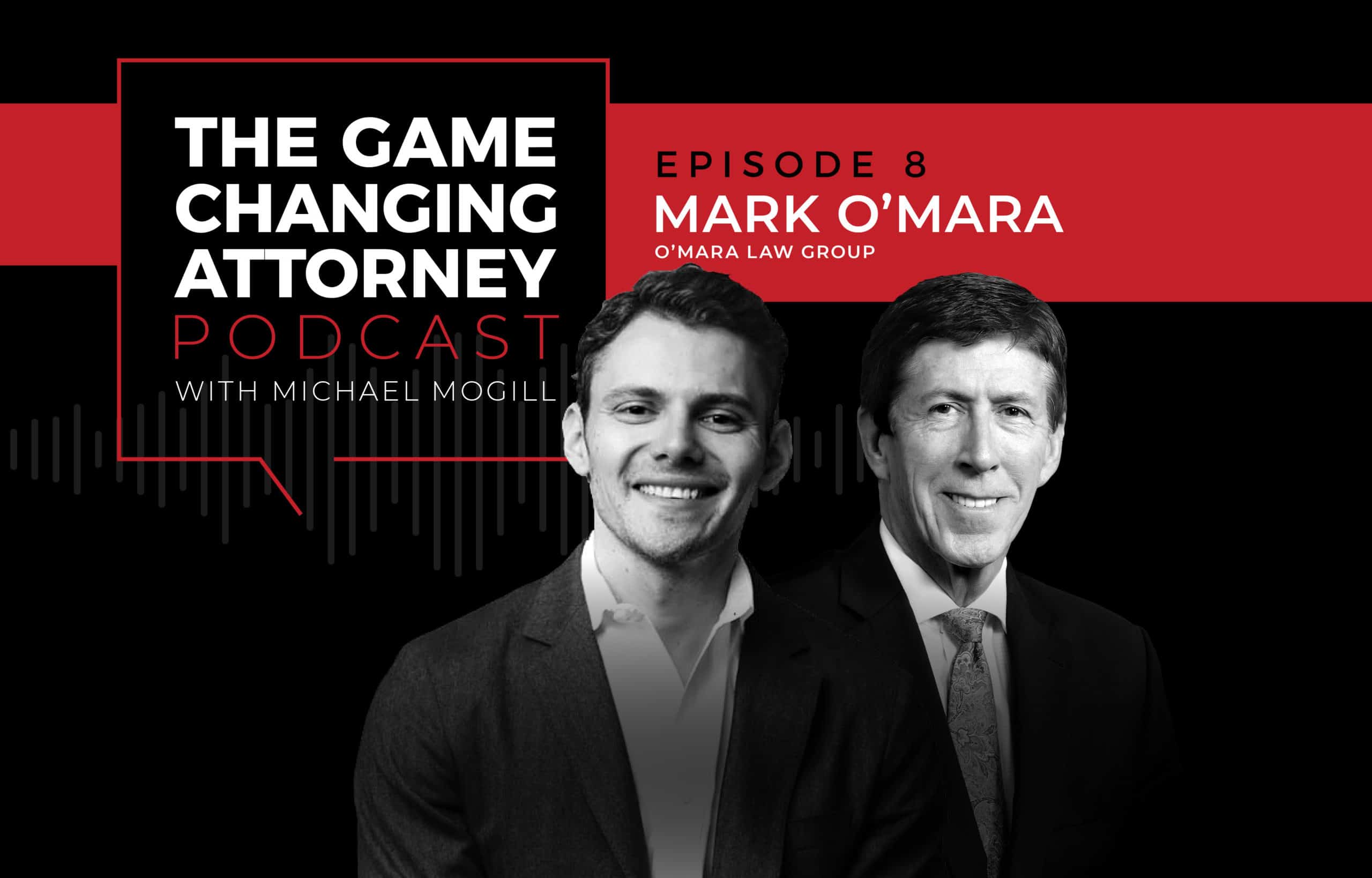
EPISODE 8 — Mark O’Mara — Defending George Zimmerman & Navigating the Media
Mark O’Mara became a household name in 2012 when he signed on as the defense attorney for the infamous George Zimmerman. This career-defining case captured the attention of millions and changed his career forever.
In this episode, Mark dives deep into the pressures of being a lawyer thrust into the public eye — and how that challenge drove him to succeed.
This conversation will dive deep to uncover the hidden truths the media didn’t cover, answering questions such as:
- How does it feel to be the most famous defense attorney in America?
- How did he balance the challenging Zimmerman defense with the intense media scrutiny of the highest-profile case in the country?
- What’s the problem with today’s juvenile justice system?
- Which personal traits keep Mark calm in chaos of the courtroom?
- What are the dangers of trial by media?
- How can attorneys continue to beat their professional goals and keep pushing the limits?
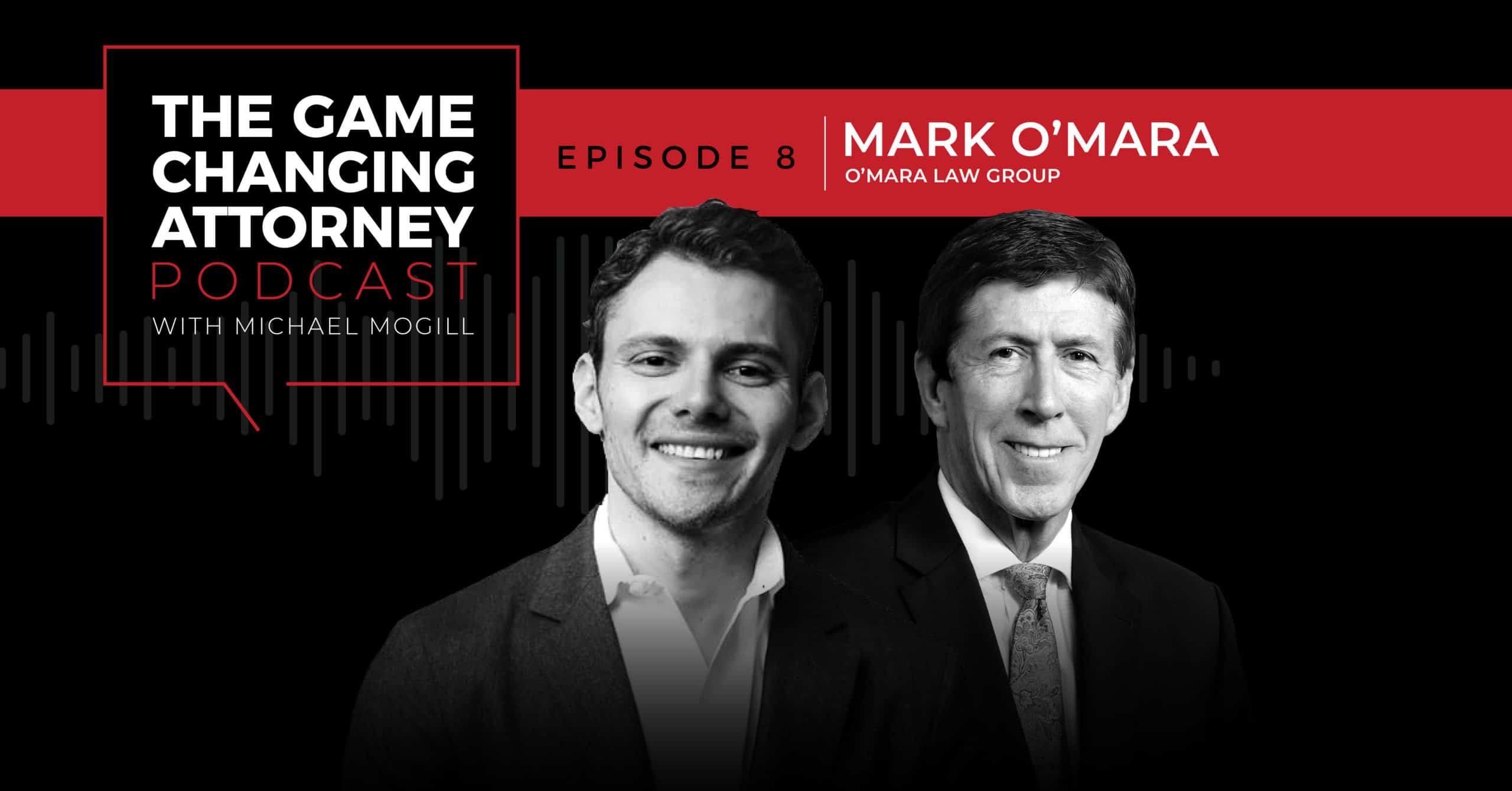
Listen & Subscribe
Show Notes:
2:25 – A career-defining case. “How do you not connect me to a case that literally not only completely changed my career, but really changed the course of criminal justice in America? Not making it more than it was, but it really was a case that focused a lot of people.”
6:09 – Catching the trial bug. “A buddy of mine who was a roommate at the time — third year law school — got an internship with the State Attorney’s office, and literally as a law student, he was trying cases. I went to see a couple of them, and it was game over — the bug had bitten, and I had to get into a courtroom. So I gave up on becoming a personal injury lawyer. Then I became a prosecutor for about two and a half years and did that, loved it, and then kept active in criminal defense.”
7:37 – Born to practice law. “There are people who like non-stress. I wake up, I grow, I excel in times of high stress. And though I don’t perceive it to be stressful walking into a courtroom, other people perceive it to be very stressful to me. I walk into a courtroom — that’s my nirvana. It’s almost like, you know — I probably can’t walk into an operating room. I can’t draw a straight line, so I can’t be an artist. But you open up the door to a courtroom, and that’s where all of my cylinders start hitting properly and every neuron is focused on what’s happening in that courtroom.”
8:55 – Securing the Zimmerman case. “It turns out that George Zimmerman was looking for a lawyer to replace the two lawyers who he had — and I will tell you, not to hassle those who preceded me, but those two lawyers were handling the case in a very aggressive manner. They were really focusing on Trayvon, which is completely inappropriate just from a strategic standpoint, and not to mention that you’re talking about a 17-year-old kid who lost his life. So George came to me looking for a new lawyer. It was an interesting case because it sort of met some of my qualities — criminal defense, self-defense, and involving a death, which just means it’s at the higher end of criminal law. And I had done a lot of work with the media before that — or again, what used to be called a lot of work with the media before that — with Casey Anthony, a bunch of other stations, and some national exposure. So, that part fit really well. It was just a very intriguing case.”
13:12 – Preparing for the storm. “We had to have a legitimate conversation because this was going to impact our personal life, a lot. Financially, obviously, but also just the privacy of it. We knew that we were going to be out there in the public eye, and had I done what these other lawyers had done — you can hold yourself up to ridicule, but let me tell you something: you ridicule yourself or your privacy or your practice on national TV, and it doesn’t go away. So there were lengthy conversations, particularly with my wife Jen, to decide that we were willing to take on something that we knew was going to have a lot of impact and potentially some negative.”
14:24 – The media frenzy. “Somebody called me up and I said, ‘Yeah, I’m going to be counsel for George Zimmerman,’ and I am not exaggerating because we have the pictures — within half an hour, there were 75 vehicles up and down my little street, about a dozen satellite trucks, and about 100 reporters that made a semi-circle around the front door. That was the explosion that happened at that point because that was the day that they indicted him and charged him with second degree murder. It didn’t just build up. It blew up from day one, and literally from that day until about a week after the trial — that’s almost two years — there was never less than a dozen people outside of my office — normally 20 to 30 — and I’m talking like every day, most days.”
16:05 – Awareness is key. “I’m a criminal defense attorney. That’s what I do for a living, meaning I represent a lot of young black males in the criminal justice system. I say that because I’m very sensitized to those issues and to the biases that exist in the criminal justice system. So I had to be very aware of what the Martin family was going through, and not just the Martin family as those individuals, but the black community focused on the Zimmerman case as being the poster child case for that type of bias in the criminal justice system. The facts didn’t really match, but the passion was there in that community. And we had to be very aware and careful of that.”
18:16 – In the eye of the storm. “You could not imagine some of the correspondence — in addition to the 2,500 truly legitimate threats we received. There were thousands of letters that came in: supporting letters and also letters that tell us ‘you’ll never see tomorrow.’ It was just trying to keep balanced, trying to keep a chill perspective on it, and also dealing with other fellow lawyers. To me, lawyers are lawyers — we know the system, we know what to do, we take sides, we’re gladiators — but I was sort of amazed that there are a number of lawyers who would talk to me and go, ‘How could you possibly?’ And I want to say to them, ‘Do you know what I do? Do you know what a criminal defense attorney does? How dare you ask that question if you know what a criminal defense attorney does?’”
20:50 – Personal effects of the case. “I couldn’t go anywhere without being approached, you know: ‘Hey, what about this? What about that? Thank you. How dare you? Go to hell!’ — whatever it might be. I didn’t mind that for me, because again, I do this for a living. I was really worried about my family, about Jen, and also my staff because, you know, that little office didn’t have metal doors in front of it. You want to throw something through a window or something like that, it was right there. So there was a lot of fear about what to do because we couldn’t control it.”
24:55 – The aftermath. “These were the best two years of my life. I wouldn’t change an hour of it. It was an absolute two-year adrenaline rush. That was me at my best. Those two years — 20 months, every day, every hour of every day — I was at my best. It was like being on an adrenaline buzz — being on, you know, 105 octane, instead of high test. It was just perfect. We had up to eight or nine law student paralegals or law students working with us. The staff was energized. If I could bottle those two years, I wouldn’t change literally an hour of it.”
27:37 – The importance of perspective. “As an attorney, I’m not supposed to care about the other side, and I’m not supposed to care about the other witnesses — I’m not supposed to care about anything. If I represent you, I represent exactly what you want me to do and use all my talents to do that. Thank God we had a factual basis in this case where I could compromise that a little bit, where I could be sensitized or sensitive to the criminal justice system, and more importantly, the societal perspective of this case, because if this was handled poorly, this thing could have blown up in the country’s face, more so than it did.”
30:21 – You’re either in or you’re out. “If you’re going to say that you’re a criminal defense lawyer, how dare you not take on the tough cases? What in God’s name you’re doing here? What you’re saying is, ‘Well, I’ll do the possession of cocaine cases because he had it in his pocket. I’ll do the DUI, or I’ll do this, but you know, those other ones, I don’t want to touch that.’ Well, then I don’t know, go sell cars.”
33:01 – Do it well. “So the reason why criminal defense lawyers should exist, and the reason why you should take on whatever case you’re given and do it with all you got is because we’re there protecting the Constitution. We are truly — as it says in the National Association of Criminal Defense Lawyers Magazine — we are liberty’s last champion. And if you don’t want to do that, that’s okay. Go do PI work or wills or trusts. Don’t be a criminal defense lawyer. If you’re going to do this, you better damn well do it well.”
34:42 – Breaking the pattern. “I decided to focus my efforts and my firm’s efforts on the juvenile system, because I will tell you, if you don’t get these juveniles woken up by the time they’re 10 or 12 — if they get into the system from truancy, to petty theft, to breaking into something, to drugs — if you don’t wake them up and have some positive effect there, you are literally fostering continued criminal behavior.”
36:21 – Juvenile outreach program. “The juvenile outreach program that we have is attempting to get to those juveniles, use some of the resources that exist — sparse as they are — to try and just kick out some percentage. I would be happy if we just got out 10% of juveniles who would otherwise end up in the jail system. So that’s one of the programs. It just makes common sense. We’re just wasting so much money into the incarcerative sanctions, putting people in prison. If we took some of that money and put it into the juvenile system, we’d have less people to incarcerate.”
38:11 – New opportunities. “One chapter that I’m very happy about is that, you know, Mike Papantonio and Levin Papantonio, Howard Nations, Mark Lanier, and Keith Givens from The Cochran Firm all really brought me under their wing within the sub-industry of mass torts, which is suing drug companies when their drugs mess up — and it happens a lot. So that has been an amazing chapter that would not have happened without the exposure from the Zimmerman case.”
40:29 – How do you want to be remembered. “If I could write my legacy, it would be: a very hard worker who loves being a lawyer, who focuses on the betterment of the system, and is willing to work for it. Not too caught up in myself — I hope other people sort of believe that because I try not to be — and that I’ve actually left every case that I’ve touched better off than when I touched it. But also on my ego side of it, better off than most other lawyers could do because I try really hard to be really good at what I do, and I would love people to know that I’m out there, busting my ass.”
42:16 – What he’s learned. “It is so easy to get caught up in the ego and celebrity, and do not. It will destroy you. It makes it artificial. That’s not really good. And in the same sense, you’ve got to keep your balance. You’ve got to have that internal navigation system, that rudder, that keeps you on track.”
45:20 – What makes someone a game changer? “What I think being a game changer really means is having that awareness, that focus on maintaining what is really important long term for your firm, for your practice, and for your own self health. And if you do that, I mean, that to me is what a game changer is: being able to take the opportunities that we all have that we all are given, but be able to sort of focus on them so that they get done in a way that really futures who you want to be a year from now, or five years from now.”
EPISODE RESOURCES
Mark O’Mara on CNN
Mark O’Mara on Court TV
Mike Papantonio, Levin Papantonio
Howard Nations
Mark Lanier
Keith Givens, The Cochran Firm
Do the Right Thing (movie)
Connect with Michael
- Text directly at 404-531-7691
